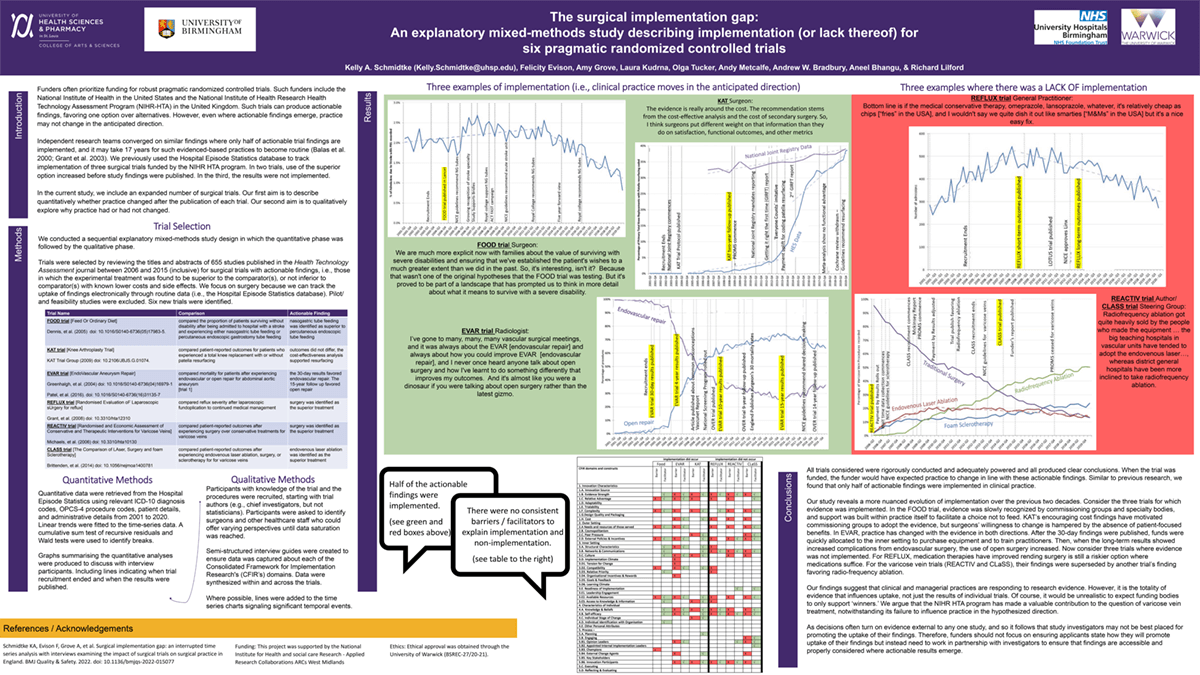
Introduction: Every year national funding organizations invest billions of dollars in the development and evaluation of interventions to improve people’s wellbeing. Pragmatic randomized controlled trials can generate robust evidence in support of one treatment over others. However, even where such evidence is generated, practice may not change. Based on findings published in the late 20th century, only half of actionable trial findings are implemented in practice. The current study investigates whether and why practice changes according to the findings of six pragmatic randomized controlled surgical trials in England.
Methods: A sequential, explanatory mixed methods study was conducted. Interrupted time-series analyses were used to assess whether actionable findings from six large, publicly funded surgical trials influenced practice. Then, qualitative interviews were performed. The Consolidated Framework for Implementation Research (CFIR) domains were used to synthesize the findings.
Results: Practice changed in accordance with half of the trial findings. In one trial (patella resurfacing), change commenced after the protocol was published – before the findings were published. In another trial (percutaneous vs nasogastric tube feeding), change commenced a decade after the trial’s findings were published. In the third (abdominal aortic aneurysm repair), changes promptly tracked the evolving evidence-base in both directions. For the two varicose vein trials, the results were superseded by a further trial. For the gastric reflux trial, medical treatment overtook surgical intervention. Interview analyses find practical reasons for non-adoption in the three trials where evidence did not affect practice.
Impact: Decision-makers respond to the totality of evidence. There are often good reasons for not adopting the evidence of any one trial in isolation. Trialists and funders could attend to a broader range of evidence to select what trials are conducted and to facilitate implementation where appropriate.
Organization: University of Health Sciences and Pharmacy
Schmidtke KA, Evison F, Grove A, Kudrna L, Tucker O, Metcalfe A, Bradbury AW, Bhangu A, Lilford R